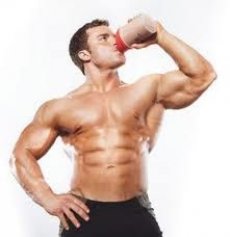New publications
U.S. doctors recommend refraining from "sports shakes"
Last reviewed: 30.06.2025

All iLive content is medically reviewed or fact checked to ensure as much factual accuracy as possible.
We have strict sourcing guidelines and only link to reputable media sites, academic research institutions and, whenever possible, medically peer reviewed studies. Note that the numbers in parentheses ([1], [2], etc.) are clickable links to these studies.
If you feel that any of our content is inaccurate, out-of-date, or otherwise questionable, please select it and press Ctrl + Enter.

American doctors have issued a warning to the public regarding energy drinks. Children and teenagers should not drink these drinks under any circumstances; it is better to abstain from "sports cocktails" or, at the very least, consume them in limited quantities.
According to Dr. Holly Benjamin of the American Academy of Pediatrics, children do not need energy drinks. The drinks contain caffeine and other stimulants that have no nutritional value, so they are simply not needed by growing bodies. In addition, children are more vulnerable to the harmful ingredients in energy drinks, and if consumed regularly, the child's body simply begins to experience stress.
In formulating the new guidelines, doctors reviewed previous studies that examined both energy drinks and non-stimulant sports drinks. The experts note that energy drinks contain many ingredients, including vitamins and herbal extracts, whose side effects are not yet fully understood. And while there are not many cases of health problems directly related to energy drinks, stimulants can disrupt heart rhythms and, in rare cases, lead to seizures.
Ms. Benjamin recalls a recent case of a 15-year-old boy with a history of attention deficit hyperactivity disorder (ADHD) who was hospitalized with a heart attack after drinking two 700-gram bottles of Mountain Dew, a soft drink containing caffeine. The teenager was taking stimulant medication for his ADHD, and the extra caffeine had a negative effect on his heart.
Holly Benjamin and her colleagues are confident that most children are best off drinking only plain water. If a child or teenager is actively involved in sports, they can take sports drinks containing sugar. For those who lead a less active lifestyle, sports and energy drinks provoke weight gain.
Let us recall that in February, pediatricians from Florida already warned about the dangers of energy drinks and described cases of seizures, hallucinations, heart and kidney problems, and liver damage in patients who drank one or more cans of energy drinks a day under the brands Red Bull, Spike Shooter, Redline, etc. For example, in Ireland, 17 such cases were recorded between 1999 and 2005, and in New Zealand, 20 episodes occurred between 2005 and 2009.
